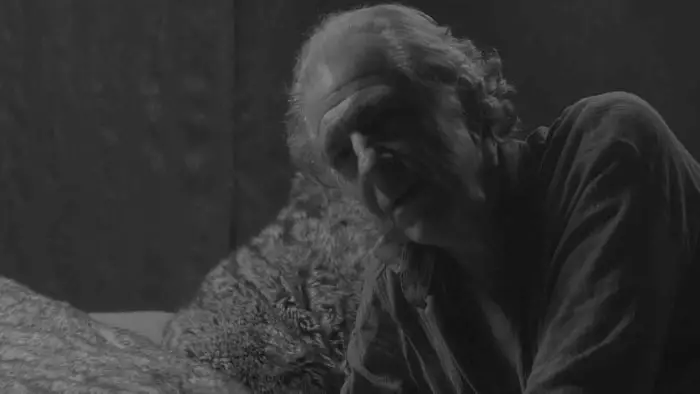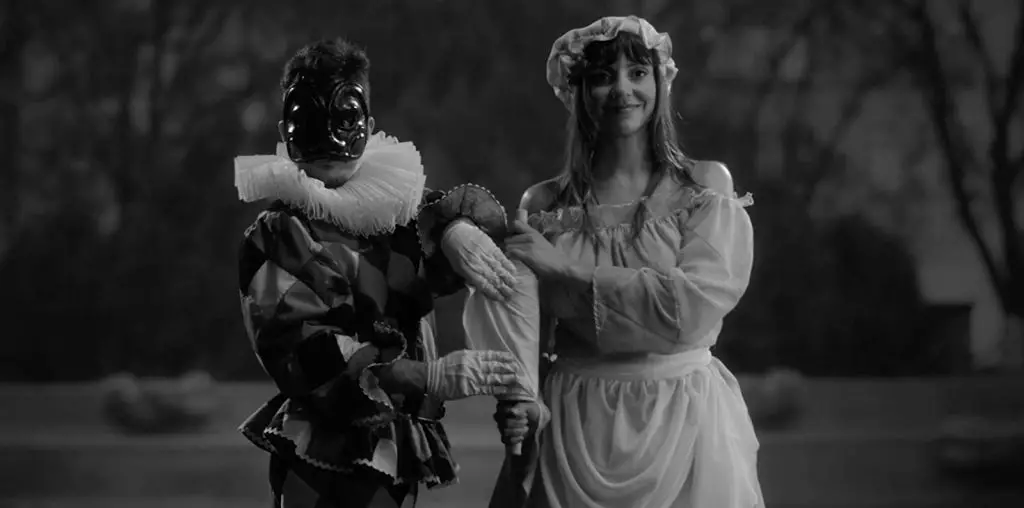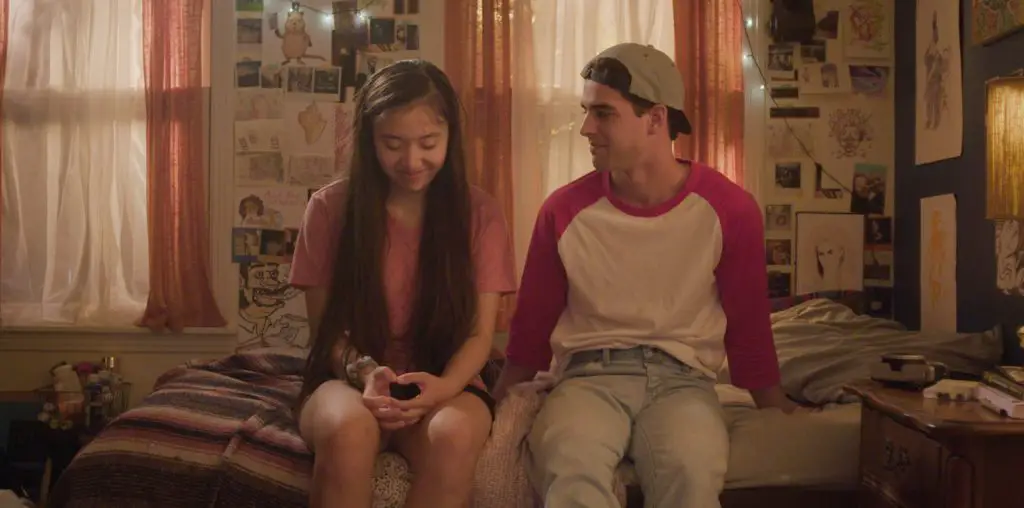
Shot in a soft black and white, embraced by a warm jazz soundtrack, Love is Not Love is gorgeous and brilliant. Mills weaves in Tristan and Isolde in the distinctive Northern Irish accent of the workers. If you think it’s unlikely that Irish construction workers could have a robust, heartfelt debate about the works of Sir Thomas Malory and romantic love, then you don’t know the Irish or New York City. Yet, this kind of charm is what breathes life into the setting. Near the end, the brusque, abrasive construction workers respond to two women who speak to them in Irish and suddenly transform, taking on the roles of Tristan and Isolde with the seemingly random women in a magic moment of lyrical fancy.
Mills in Toronto Film Magazine spoke of what compelled him to make the movie: “The inspiration was also my nemesis—what I call the erotic/domestic divide in my soul and in relationships.” Frank’s inner turmoil plays out on screen, embellished by various characters and vignettes. Frank is literally put on trial over breakfast by Paula in one scene where he imagines her judging him. The acting is superb throughout.

“…a gem, a soft rumination on love and aging.”
Adding to the elegance and class of the internal journey we take with Frank throughout Love is Not Love are a couple of Shakespeare references that land perfectly. First, the title is taken from Sonnet 116: “Let me not to the marriage of true minds / Admit impediments. Love is not love / Which alters when it alteration finds…” Applied here, the phrase would seem to be either damning Frank for trying to find something else when he’s not entirely satisfied, despite the fact that life is not designed for us to be so. However, a brief few golden moments here and there prove that there are exceptions. But, the sentiment could be calling to Frank to discover which woman he holds that truest form of love for, seeking that “ever-fixed mark.”
Love is Not Love is a gem, a soft rumination on love and aging. Romance is never easy. Frank sees a choice between fiery “eros” and companionate “agape,” but it’s a false dichotomy because he needs both, as do we all. It shows us these two loves and the romance in the filmmaker’s soul.

"…life is not designed for us to be [entirely satisfied]."


